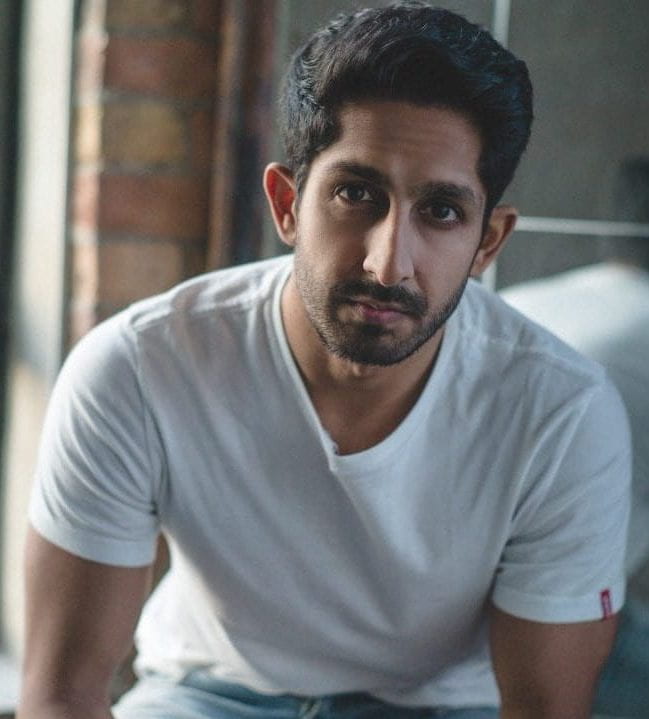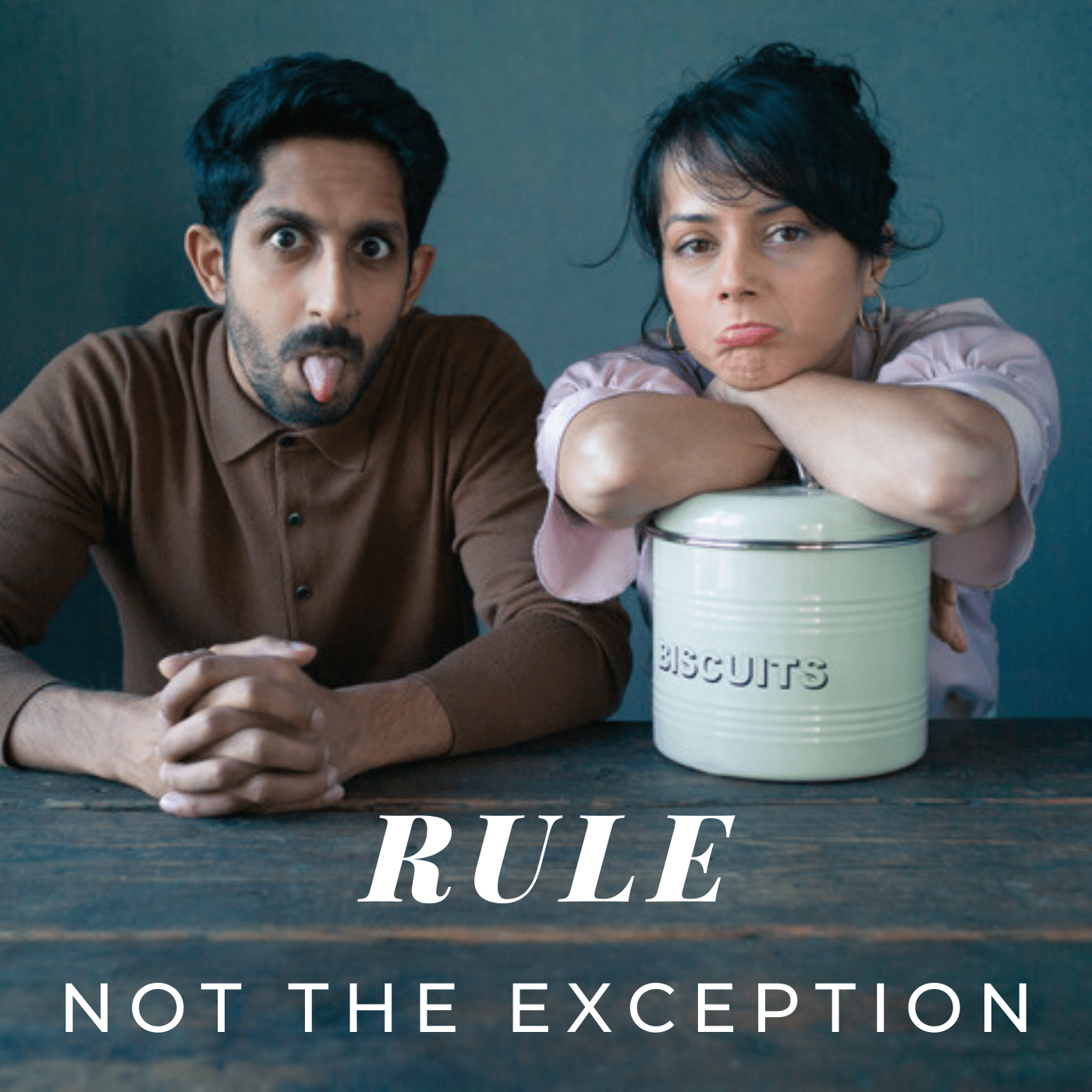
Sagar Radia (Media and Sociology, 2007) is no stranger to the spotlight; you may recognise him from ITV’s The Good Karma Hospital. He has also acted in Jesse Eisenberg’s play The Spoils and is currently on-screen in HBO/BBC’s new finance show Industry. But now, Sagar is using his platform ‘to celebrate and ignite honest conversations with people from all different backgrounds’ via his co-hosted podcast Rule Not The Exception.
We caught up with Sagar to find out all about his acting journey and what we can expect from his new podcast.
Can you tell me about your time at City?
Going to a University in the heart of London was a different experience to those of my friends who opted for a more traditional campus feel in the north of England. I was surrounded by skyscrapers and Starbucks, alongside the melting-pot of multiculturalism and millennials.
I quite enjoyed my time at City. I had friends, who I’ve known since I was 12 years old, continue on our educational path together, whilst also meeting an eclectic mix of people who I could learn from and debate with about our lived experiences.
Northampton Square being the HQ of the University felt like a centre-point for pre-nights out, or post if the Student Union had anything to do with it. I remember frequently walking down the long hallway connecting the canteen to the Oliver Thompson Lecture Theatre, and everything in-between. This was where I saw it all happen – people rushing to lectures, grabbing a coffee or a bite to eat, social group used it as a meeting point, University groups used it to recruit members to the cause, and guys and girls would pass a smile over fleeting moments, or more.
Over ten years on and I look back on my time with fondness. Whenever I’m in the surrounding area I catch myself reminiscing about The Elbow Room, Pitcher & Piano, or closer to home, the destruction my friends and I caused during our tenure at a flat on Bath Street which sat adjacent to Old Street roundabout. Unrecognisable now to how it was then. Taken over by vegan cafes and WeWorks offices, the years between 2004-2007 seem like a lifetime ago, but one I won’t forget any time soon.
What happened after you graduated?
The rare feeling of certainty of what I wanted to do with my life was compounded after I graduated. Having already achieved professionals acting roles for the likes of the BBC and Channel 4, I knew I had to continue what I’d started.
The most unusual part of leaving the bubble of education can be the feeling of ‘you’re on your own’. But I didn’t fear this. If anything, at twenty something I felt pretty indestructible, as life hadn’t hit me with its best shot yet. I would attend countless auditions, get knocked back time and time again, and be told ‘no’ more often than ‘yes’. I got a part-time job in retail to subsidize the dream. I would have my heart broken once or twice to help me realise the harsh realities of being with an artist, and the lack of stability that came with. Across the way, I would see my friends setting up their lives working in finance, medicine, or engineering. The feeling of ‘not enough’ started to seep through but I kept moving forward no matter how small the steps were.

Stints in theatre, commercials and small TV appearances followed. Momentarily I went to work for a marketing firm in Leicester Square, when the pressure of no acting work became too much.
This hiatus gave me just the break I needed, and I came back fresh and ready to go for round two. I started attending classes, adjusted my look, read book after book and hit the industry harder. But also smarter.
I felt rewarded when I got a chance to perform on the West End stage at the Trafalgar Studios in a play called The Spoils, alongside Academy Award nominated Jesse Eisenberg (The Social Network), TV star Alfie Allen (Game of Thrones) and Olivier Award winner, Katie Brayben. #ImposterSyndromeAlert.
This was swiftly followed by a regular role in an ITV Sunday night drama, The Good Karma Hospital which I would go on to do for three seasons as I write this.
More recently I got to work with the holy-grail of television companies, HBO. Industry, which is currently showing on BBC iPlayer for UK audiences, was a chance to move away from my character on The Good Karma Hospital and I was grateful to get the opportunity to work with a fantastic team and the next generation of actors coming through to take the world by storm.
What has been the most rewarding experience?
Having never attended a traditional drama school you can’t help but feel like you’ve missed out on formal training. The London theatre scene is world renowned and respected. So, to get the opportunity to tread the boards of a London theatre, for me, has been the most rewarding experience.
To share the stage with the actors I did in The Spoils was surprising at first. Why me? Which actors said no before it came to me? All the standard imposter syndrome thoughts! I remember messing up a couple of lines on my first performance and like the pro’s they are, Alfie Allen and Jesse Eisenberg saved the day. The interval was basically me thanking them, like a fan at the stage door.
Working with our New York based director, Scott Elliott taught me a lot. He demanded the best and would push your buttons to deliver the performance he needed. Four months of working alongside him was both educational and rewarding, and I don’t think he will truly realise the impact he had on me unless our paths cross again.
What has been the biggest challenge with regards to acting?
I think the biggest challenges you can face as an actor are the uncertainly and rejection. It’s a timeless classic that this career warns you about. However, if you know deep inside that you can’t see yourself doing anything else, then you’ll know deep inside THIS is where you need to be. It’s one of the few industries that is not a meritocracy. You can be the best actor on earth and still not get the gig. Therefore, all you can do is be the best you can be, and that consistency will hopefully see you though. Add a bit of luck and a break and you can make a career out of it.
I’ve been extremely lucky with some of the breaks I’ve had and I put it all down to perseverance. My ability to take the L [loss] and keep moving is my biggest strength. Whether it be an audition that didn’t go my way, a bad performance, friends or family questioning my choices, or any number of a hundred deterrents, I never let it get me down for too long.
I think it’s also important to mention that as a person of colour in the entertainment industry, the lack of roles is clear to see. This is one of the biggest challenges to exist. I’m trying to be the change I want to see, and I’ve done that by starting a podcast called Rule Not The Exception. It’s a podcast that champions and celebrates the journeys of people from a minority background within entertainment, fitness, arts and beyond. We’re very much an inclusive podcast with exclusive guests so please go and check it out!
 Why did you start your podcast?
Why did you start your podcast?
I started my podcast Rule Not The Exception alongside my co-host Amrita Acharia (The Sister, Good Karma Hospital) as a way to celebrate and ignite honest conversations with people from all different backgrounds. We found there was a gap in the market for conversations with people of colour and people from minority backgrounds, and with our platform as actors we could hopefully attract guests to come on and talk about their experiences. To date we’ve been incredibly fortunate to have guests such as Ruth Madeley, Nabhaan Rizwan, Mandip Gill, Himesh Patel, Anjli Mohindra, and Eleanor Matsuura, to name a few.
What topics can listeners expect you to cover?
We’ve found what works for us is trying to let the conversation flow in a natural direction. That way it can feel more like an authentic chat, which is really important to us, so the guest can feel as comfortable as possible. Ultimately, we want to cover themes such as representation and inclusivity so, we do bring up how that may have affected them throughout their careers, both positively or negatively. Our USP is to acknowledge our guest’s accomplishments, and as people from minority backgrounds ourselves, we want to provide that platform for people who don’t always have the opportunity to do so.
Do you have any advice for anyone looking to follow in your footsteps?
I started during a time where the power of the internet was nowhere near what it is today. My advice is to use that to your advantage. If you want to be an actor, filmmaker, writer, producer or anything related to the entertainment industry, there has never been a better time to get your product to market. The quality of mobiles phones is nuts, the ability to reach millions of people at the click of a button is mind-blowing, and the reliance on conventional routes into the industry are becoming a thing of the past. You can film your performance or make your own movie and distribute it yourself. If the product is good enough, it will attract the attention of the right people.
Another piece of advice is to try and explore different skill sets. As well as an actor, I’m also a writer and podcaster. Find what your strengths are and build on those. It doesn’t have to always been within the same field, but don’t underestimate a side hustle. It can help give you longevity!
Find Sagar on Twitter and Instagram
Rule Not The Exception Podcast is available across all podcast platforms @rulenottheexception
Industry airs on Tuesday nights, BBC2, 9:15pm or BBC iPlayer.